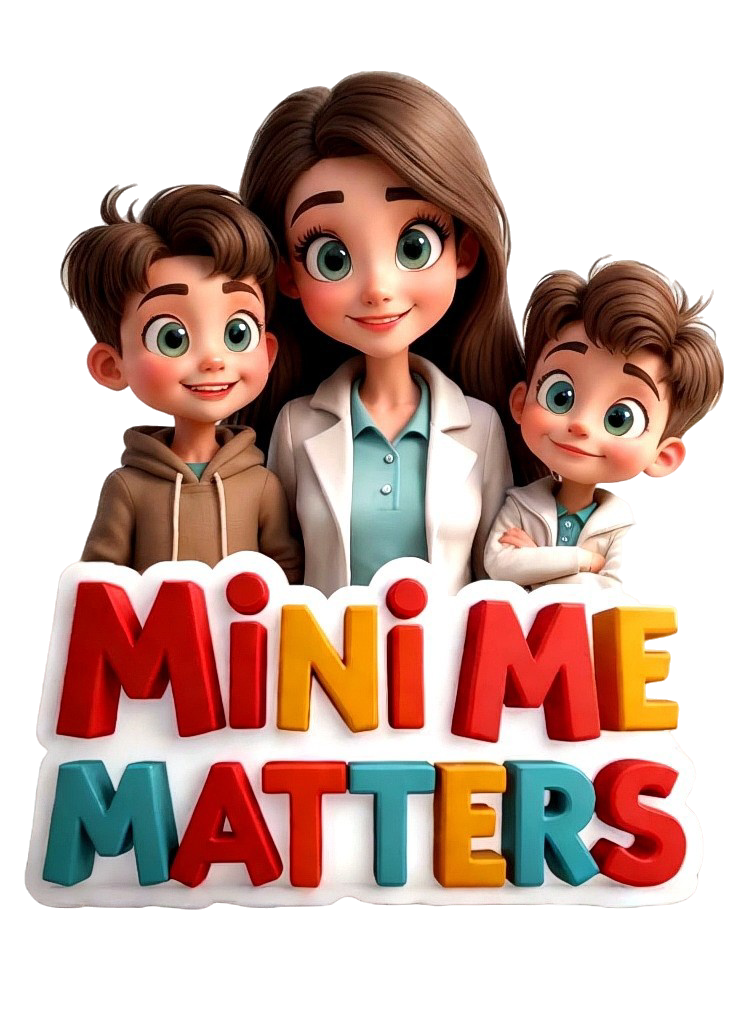Ever feel like your Mini-Me could give Socrates a run for his money with all those “Why?” questions? Fear not—it’s not a plot to wear you down. It’s their brain doing what it’s supposed to: acting like a tiny, relentless scientist. Here’s why Mini-Mes can’t stop asking questions and why that’s actually great news (for them, not always for your sanity).
Constant questioning is a hallmark of childhood—and it’s rooted in the natural scientific process that even the youngest minds instinctively follow. Here’s a look at why Mini-Mes ask so many questions and how answering them nurtures critical thinking and development.
The Science Behind the “Whys”
It turns out, our little inquisitors aren’t just being annoying; they’re actually hardwired for learning. According to research, curious Mini-Mes are more motivated learners.
Our hippocampus, a region associated with memory and learning, is particularly active when we’re curious. This neural activity motivates us to explore and seek out new information.
Add in the fact that Mini-Mes are born problem-solvers—thank you, evolution—and their questions become experiments to fill in the gaps in their understanding. Think of them as scientists running tests on the world. Unfortunately for you, you’re the lab assistant and parental support of curiosity plays a pivotal role. A study by Gottfried et al. (2016) demonstrated that when parents actively encourage exploration and inquiry, children show significantly higher achievement in science. This is because curiosity fosters intrinsic motivation—a powerful force for lifelong learning.
So, the next time your child asks, “Why is grass green?”, remember: you’re not just answering a question, you’re nurturing a future scientist.
How to Handle the “Why” Windstorm
Embrace the Chaos: Don’t try to stifle their curiosity. Let them ask away, even if it’s the 100th time you’ve explained why the sky is blue.
Level Up Your Explanations: Start simple, but don’t be afraid to dive deeper. For example, you can explain that the sky is blue because of the way sunlight scatters in the atmosphere.
Encourage Exploration: Fuel their curiosity by providing opportunities for hands-on learning. A trip to the park, a visit to the zoo, or even a simple backyard experiment can spark countless “whys.”
Don’t Be Afraid to Say “I Don’t Know”: It’s okay to admit when you don’t have the answer. In fact, it can be a great opportunity to learn together.
Remember, every “why” is a chance to connect with your child, spark their imagination, and foster a lifelong love of learning. So, the next time your Mini-Me asks, “Why, why, why?”, embrace the chaos and enjoy the ride!
The Benefits of Answering “Why?”
Enhanced Cognitive Skills
Engaging with a child’s questions helps develop their problem-solving abilities and critical thinking. Curiosity is central to wonder and discovery, helping children connect abstract concepts with real-world applications.
Academic Success
Curiosity-driven learning leads to deeper understanding and better performance in science and other academic areas,
Emotional Growth
Responding to children’s questions with enthusiasm fosters a sense of safety and importance, encouraging emotional resilience and social connections. Plus, it’s way better than them suppressing their curiosity and bottling it up until their 20s when it all comes out in existential dread!
Long-Term Exploration Habits
Children who are encouraged to explore are more likely to retain their natural inquisitiveness into adulthood, aiding personal and professional growth.
How to Engage Effectively
Model Curiosity: Show your own interest by asking questions and exploring answers together.
Promote Open Dialogue: Encourage children to hypothesize and test their ideas, aligning with the scientific method.
Value the Process: Focus on the joy of discovery rather than just the “right” answer, reinforcing intrinsic motivation.
Why It Matters
Curiosity isn’t just about learning facts—it’s about nurturing a mindset that values discovery and innovation. Supporting a child’s inquisitive nature builds cognitive, social, and emotional skills that shape their future success.
So the next time your Mini-Me asks “Why?”, embrace the opportunity to explore the wonders of the world together and dive in (before they Google it themselves and start correcting you!!)

References
- Gottfried, A. E., Sakshaug, L., & Gottfried, B. S. (2016). Parental promotion of curiosity and its relationship to children’s science achievement. Journal of Educational Psychology, 108(1), 118–130.
- Kang, M. J., McDermott, K. B., & Jones, M. D. (2009). Curiosity and the hippocampus: How uncertainty motivates exploration and learning. Neuron, 64(3), 463–475.
- Silvia, P. J. (2012). Curiosity: The science of wonder. Oxford University Press.



